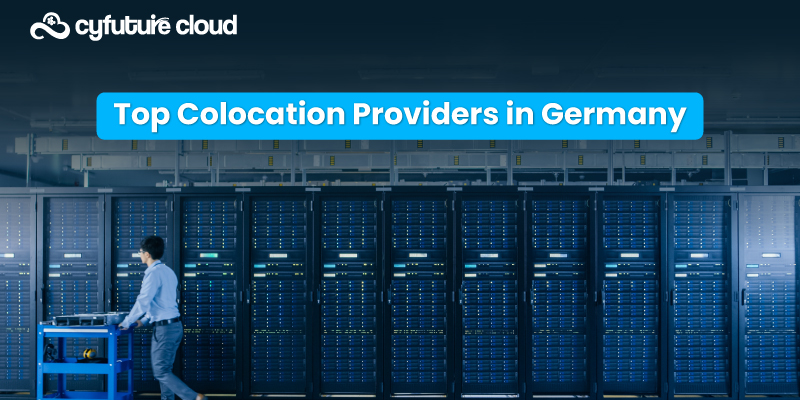Table of Contents
Are you tired of spending endless hours on household chores? Do you feel like there aren’t enough hours in the day to get everything done? Well, have no fear because the cloud is here! Yes, you read that right – the cloud is not just for storing your data, but it can also help you with your household chores. In this blog, we’re going to explore the idea of using cloud computing to make our lives easier and more efficient.
So, what exactly is cloud computing? In simple terms, cloud computing refers to the delivery of computing services over the internet. These services include storage, processing, and networking resources that can be accessed remotely. Cloud computing providers offer these services to individuals and businesses, enabling them to store and access data from anywhere in the world.
Cloud computing has been on the rise in recent years, with more and more people relying on cloud-based services for their everyday needs. In fact, according to a report by Gartner, the global public cloud services market is expected to reach $397.4 billion by the end of 2022, up from $242.7 billion in 2019.
Now, imagine being able to use cloud computing to make your household chores more efficient. For example, you could use a cloud-based laundry service that automatically sorts, washes, and dries your clothes, all while you sit back and relax. Or, you could use a cloud-based grocery service that automatically restocks your fridge based on your preferences and needs.
The possibilities are endless, and in this blog, we’ll be exploring some of the ways in which cloud computing can help with household chores. So, grab a cup of coffee, sit back, and let’s dive in!
Smart Home Devices
Are you tired of living in a world where you have to do everything yourself? Well, it’s time to enter the era of smart homes! With the help of cloud computing, we can now turn our homes into a fully automated, efficient machine. Smart home devices are becoming more and more popular, with millions of households relying on them for their everyday needs. In this section, we’ll explore some examples of smart home devices that rely on cloud computing and the benefits of using them for household chores.
Examples of smart home devices that rely on cloud computing:
- Smart Thermostats: A smart thermostat is a device that can be controlled remotely using a smartphone or computer. These thermostats use cloud computing to store data and learn from your habits and preferences, automatically adjusting the temperature to your liking. According to a report by MarketsandMarkets, the global smart thermostat market is expected to grow from $2.5 billion in 2020 to $6.4 billion by 2025.
- Smart Kitchen Appliances: From smart refrigerators to smart ovens, there are a variety of kitchen appliances that rely on cloud computing to make your life easier. For example, a smart refrigerator can keep track of your groceries, alert you when you’re running low on certain items, and even suggest recipes based on the ingredients you have. According to a report by Allied Market Research, the global smart kitchen appliance market is expected to reach $32.1 billion by 2025, growing at a CAGR of 19.2% from 2018 to 2025.
Benefits of using smart home devices for household chores:
- Convenience: Smart home devices make our lives more convenient by automating tasks that would normally require our time and attention. For example, a smart vacuum cleaner can clean your floors while you’re at work, saving you time and effort.
- Efficiency: Smart home devices are designed to be efficient, using cloud computing to learn from your habits and preferences and adjust their behavior accordingly. This not only saves time but also reduces energy consumption, which is good for both your wallet and the environment.
In conclusion, smart home devices that rely on cloud computing are revolutionizing the way we live our lives. They offer convenience, efficiency, and a better overall experience for homeowners. With the market for smart home devices expected to continue to grow in the coming years, it’s clear that this is just the beginning of what’s possible.
Virtual Assistants
Are you tired of feeling like you’re talking to a wall when you ask for help around the house? Well, with the rise of virtual assistants, you can finally get the help you need without having to leave your couch! Virtual assistants rely on cloud computing to function, and they’re becoming more and more prevalent in households around the world. In this section, we’ll explore how virtual assistants work and the tasks they can help with for household chores.
Explanation of how virtual assistants work and their reliance on cloud computing:
Virtual assistants are AI-powered software programs that can understand and respond to voice commands. They rely on cloud computing to process these commands and provide the appropriate response. This means that the actual processing of the command is done in the cloud, with the virtual assistant only serving as an interface between the user and the cloud. According to a report by Grand View Research, the global virtual assistant market is expected to reach $44.2 billion by 2025, growing at a CAGR of 31.8% from 2018 to 2025.
Examples of tasks virtual assistants can help with for household chores:
- Ordering groceries: Virtual assistants like Amazon’s Alexa and Google Assistant can help you order groceries with just a voice command. You can add items to your cart, schedule deliveries, and even get recipe suggestions based on the ingredients you have.
- Controlling smart home devices: Virtual assistants can help you control smart home devices, such as thermostats, lights, and locks. You can adjust the temperature, turn lights on and off, and even lock or unlock doors, all without having to get up from the couch.
- Creating shopping lists: Virtual assistants can help you create and manage shopping lists. You can add items to your list with just a voice command, and the assistant will keep track of what you need and suggest items based on your previous purchases.
- Managing schedules: Virtual assistants can help you manage your schedule, reminding you of appointments and important dates. You can also set alarms and timers, ensuring that you never miss a deadline or forget an important task.
In conclusion, virtual assistants are becoming more and more prevalent in households around the world, offering a convenient and efficient way to manage household chores. They rely on cloud computing to function, processing voice commands in the cloud and providing the appropriate response. With the market for virtual assistants expected to continue to grow in the coming years, it’s clear that they’re here to stay.
Online Grocery Shopping
Do you dread going to the grocery store every week? Are you tired of waiting in long lines and lugging heavy bags home? Well, with online grocery shopping, you can finally say goodbye to these inconveniences! Online grocery shopping relies heavily on cloud computing to provide a seamless experience for consumers. In this section, we’ll explore how online grocery shopping works and the benefits it offers for household chores.
Explanation of how online grocery shopping relies on cloud computing:
Online grocery shopping involves using a website or mobile app to order groceries for delivery or pickup. These services rely heavily on cloud computing to store and process customer data, such as order history and payment information. This allows for a seamless shopping experience, with customers able to easily navigate through products and checkout processes. According to a report by eMarketer, online grocery sales in the US are expected to reach $59.5 billion by 2023, up from $23.9 billion in 2018.
Benefits of using online grocery shopping for household chores:
- Convenience: With online grocery shopping, you can shop for groceries from the comfort of your own home, without having to worry about travel time or crowds at the store. You can easily browse products and place orders with just a few clicks, and have them delivered right to your doorstep.
- Time-saving: Online grocery shopping can save you a lot of time compared to traditional grocery shopping. You can avoid the hassle of navigating crowded stores and waiting in long lines at the checkout. This means you have more time to focus on other household chores, or to simply relax and enjoy your free time.
- Cost-saving: Online grocery shopping can help you save money by allowing you to easily compare prices and take advantage of special deals and promotions. You can also avoid the temptation of impulse purchases, which can add up quickly when shopping in-store.
- Accessibility: For those with disabilities or mobility issues, online grocery shopping can provide a more accessible and convenient way to shop for groceries. This allows them to maintain their independence and dignity while still getting the supplies they need.
In conclusion, online grocery shopping is a convenient and efficient way to manage household chores, especially for those with busy lifestyles. It relies heavily on cloud computing to provide a seamless and personalized shopping experience for consumers, and its popularity is only expected to grow in the coming years. So, if you’re looking for a hassle-free way to shop for groceries, online grocery shopping may be the perfect solution for you!
Other Ways Cloud Computing Can Help with Household Chores
In addition to the smart home devices, virtual assistants, and online grocery shopping, cloud computing can offer several other ways to make household chores easier and more efficient. For example, cloud-based home security systems allow you to monitor and control your home’s security from anywhere, while cloud-based cooking apps can help you plan meals and create shopping lists based on dietary restrictions and preferences. Cloud-based cleaning services can also be used to automate and schedule cleaning tasks, such as vacuuming and mopping floors.
Furthermore, cloud-based home automation systems can help you manage household tasks such as turning off lights, adjusting thermostats, and locking doors, all from a single platform. The possibilities are endless, and as cloud technology continues to advance, we can expect even more innovations that will help make household chores more manageable and enjoyable.
In a Nutshell
To sum it up, cloud computing can indirectly help with household chores in many ways. Smart home devices such as thermostats, lights, and security systems can be controlled remotely and personalized for maximum convenience. Virtual assistants such as Alexa and Google Assistant can help with tasks such as making lists, setting reminders, and even ordering groceries. Online grocery shopping can save time and provide convenience, while cloud-based home automation systems can automate and streamline various household tasks.
The potential of cloud computing for improving household management is immense. As technology continues to evolve, we can expect even more innovations that will make household chores easier and more efficient than ever before. With the increasing adoption of smart home devices and the growing popularity of online shopping, it is clear that cloud computing will continue to play a crucial role in household management in the coming years.
In conclusion, cloud computing is changing the way we manage our households and offers a promising future for household management. By leveraging the power of the cloud, we can make household chores more manageable and enjoyable, allowing us to focus on what really matters – our families, our passions, and our lives.
Recent Post
Send this to a friend

 Server
Colocation
Server
Colocation CDN
Network
CDN
Network Linux
Cloud Hosting
Linux
Cloud Hosting Kubernetes
Kubernetes Pricing
Calculator
Pricing
Calculator
 Power
Power
 Utilities
Utilities VMware
Private Cloud
VMware
Private Cloud VMware
on AWS
VMware
on AWS VMware
on Azure
VMware
on Azure Service
Level Agreement
Service
Level Agreement 



















